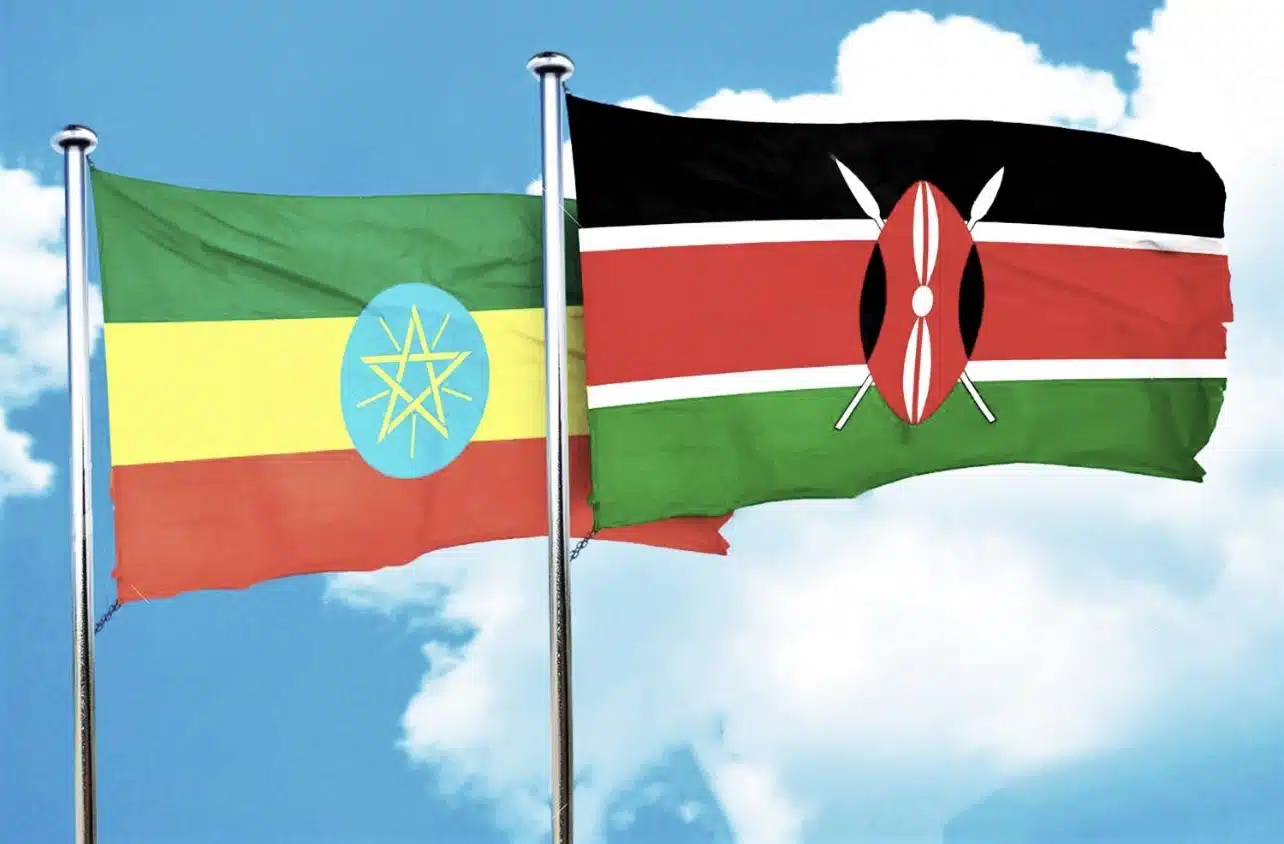Kenya and Ethiopia have signed a landmark agreement to simplify cross-border trade procedures, targeting an expansion of their $122.9 million bilateral trade under the African Continental Free Trade Area (AfCFTA).
The deal, finalised in Mombasa on Tuesday after two years of negotiations, allows traders to transport goods worth up to $1,000 per trip through the Moyale border, with a cap of four monthly trips.
It also sets up designated border trade zones extending 100 kilometres into Kenya and 50 kilometres into Ethiopia, focusing on a mutually agreed list of goods.
Kenya’s Cabinet Secretary for Investments, Trade, and Industry, Lee Kinyanjui, described the Memorandum of Understanding (MoU) as a vital step toward deepening regional integration and removing long-standing bottlenecks to cross-border commerce.
“We are emphasizing that Kenya and Ethiopia will look for ways to implement free trade,” said Kinyanjui. “This will allow goods from either country to move easily and enable people to work freely across borders.”
The initiative falls under the AfCFTA framework, designed to enhance intra-African trade and reduce the continent’s dependence on global supply chains.
Ethiopia’s Minister of Trade and Regional Integration, Kassahun Gofe, said the agreement reflects a joint commitment to fully implement the continent-wide free trade pact.
“Details of the deliberations are contained in the agreed minutes matrix. Both parties have committed to collaborating on the implementation of the African Continental Free Trade Area,” Gofe said.
Trade between the two neighbours remains modest but promising. According to the International Trade Centre, Kenya exported goods worth $86.2 million to Ethiopia in 2023, mainly vegetables, mineral fuels, and manufactured items.
Ethiopia’s exports to Kenya stood at $36.7 million, driven largely by coffee and livestock.
By creating formal trade corridors, the agreement is expected to curb informal trade, often held back by red tape and inefficient customs systems. Analysts see it as a model for other African nations navigating trade reforms under AfCFTA.
The United Nations Economic Commission for Africa has projected that AfCFTA could boost intra-African trade by as much as 40% by 2030 if such bilateral efforts are scaled across the continent.
The deal comes as economists and trade experts call on African nations to deepen intra-continental trade to reduce their exposure to external shocks from global powers.
The renewed trade tensions between the United States and China—two of Africa’s largest trading partners—have raised concerns about the continent’s vulnerability to shifts in global supply chains and export markets.
With the Kenya-Ethiopia MoU, East Africa is laying a foundation for stronger regional economic ties—one that may help cushion the continent from the ripple effects of global economic rivalries.






